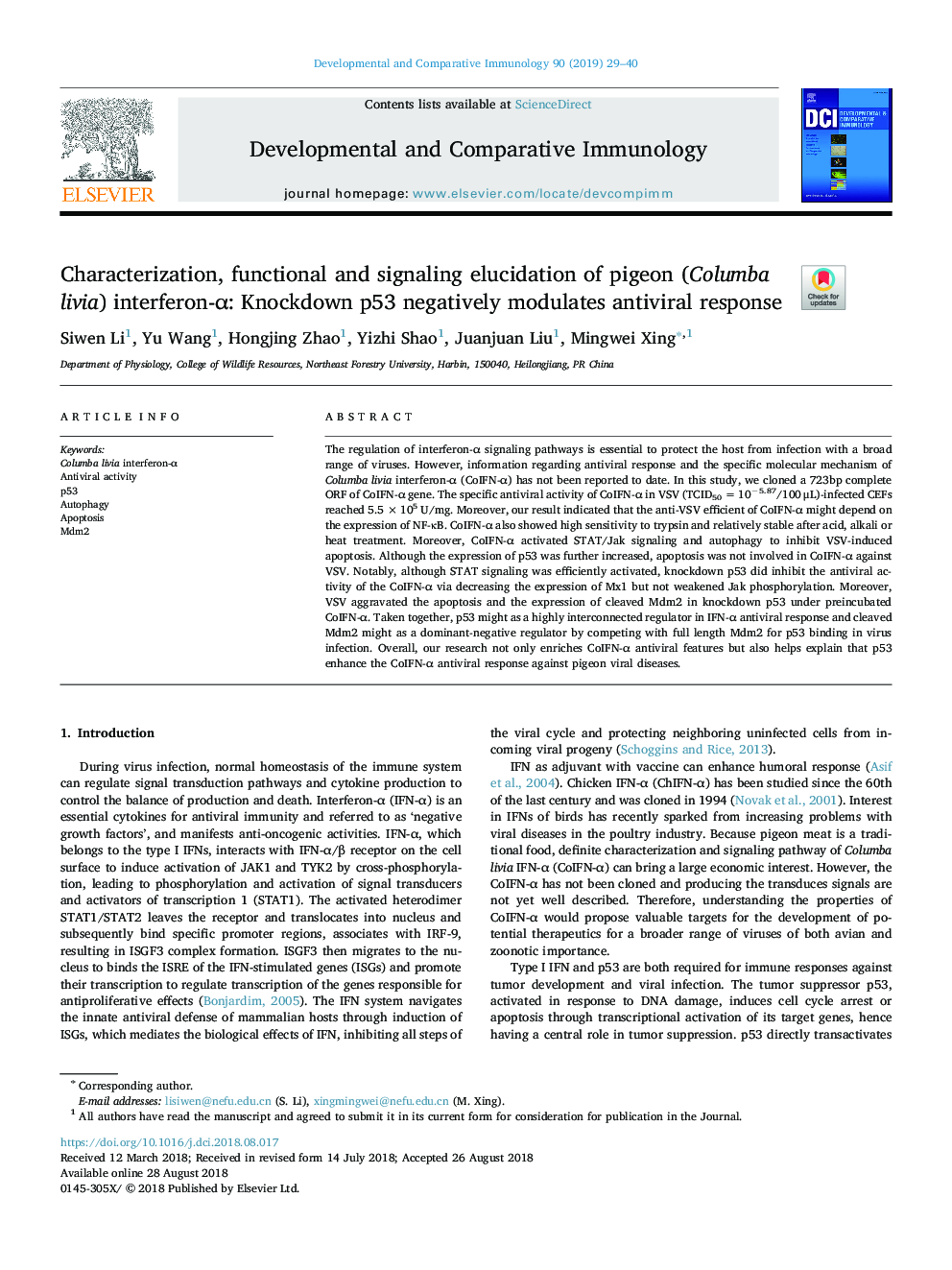| Article ID | Journal | Published Year | Pages | File Type |
|---|---|---|---|---|
| 8956430 | Developmental & Comparative Immunology | 2019 | 12 Pages |
Abstract
The regulation of interferon-α signaling pathways is essential to protect the host from infection with a broad range of viruses. However, information regarding antiviral response and the specific molecular mechanism of Columba livia interferon-α (CoIFN-α) has not been reported to date. In this study, we cloned a 723bp complete ORF of CoIFN-α gene. The specific antiviral activity of CoIFN-α in VSV (TCID50â¯=â¯10â5.87/100â¯Î¼L)-infected CEFs reached 5.5â¯Ãâ¯105 U/mg. Moreover, our result indicated that the anti-VSV efficient of CoIFN-α might depend on the expression of NF-κB. CoIFN-α also showed high sensitivity to trypsin and relatively stable after acid, alkali or heat treatment. Moreover, CoIFN-α activated STAT/Jak signaling and autophagy to inhibit VSV-induced apoptosis. Although the expression of p53 was further increased, apoptosis was not involved in CoIFN-α against VSV. Notably, although STAT signaling was efficiently activated, knockdown p53 did inhibit the antiviral activity of the CoIFN-α via decreasing the expression of Mx1 but not weakened Jak phosphorylation. Moreover, VSV aggravated the apoptosis and the expression of cleaved Mdm2 in knockdown p53 under preincubated CoIFN-α. Taken together, p53 might as a highly interconnected regulator in IFN-α antiviral response and cleaved Mdm2 might as a dominant-negative regulator by competing with full length Mdm2 for p53 binding in virus infection. Overall, our research not only enriches CoIFN-α antiviral features but also helps explain that p53 enhance the CoIFN-α antiviral response against pigeon viral diseases.
Related Topics
Life Sciences
Biochemistry, Genetics and Molecular Biology
Developmental Biology
Authors
Siwen Li, Yu Wang, Hongjing Zhao, Yizhi Shao, Juanjuan Liu, Mingwei Xing,
